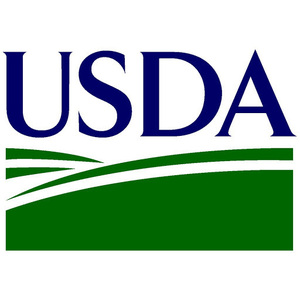USDA reports strong interest for Climate-Smart Commodities funds

May 12, 2022
BY Erin Krueger
The USDA on May 10 announced it received more than 450 proposals for large-scale projects under its new Partnerships for Climate-Smart Commodities program. The agency is accepting proposals for smaller-scale projects through June 10.
The USDA first announced plans for the initiative in September 2021. The newly launched program will finance pilot projects that create market opportunities for U.S. agricultural and forestry products that use climate-smart practices and include innovative, cost-effective ways to measure and verify greenhouse gas benefits.
Advertisement
The agency in February opened a $1 billion funding opportunity for the Climate-Smart Commodities program. Funding for the program is being provided through the USDA’s Commodity Credit Corp. to support and provide incentives to pilot project producers and landowners to implement climate-smart production practices, activities and systems on working lands; measure/quantify, monitor and verify the carbon and GHG benefits associated with those practices; and develop markets and promote the resulting climate-smart commodities.
The funding opportunity is divided into two pools. The first is for larger-scale proposals from $5 million to $100 million, with an initial application deadline set for April 8. The second funding pool is for smaller-scale projects ranging from $250,000 to $4.99 million. The deadline for the second pool was originally set for May 27. The agency extended those deadlines in March. The deadline for the first pool was extended to May 6, while deadline for the second pool is now set for June 10.
The USDA issued a statement on May 10 announcing that more than 450 proposals were submitted by more than 350 groups as part of the first application pool. The agency said it will evaluate those applications over the next few months. Awards for the first round of funding are expected to be awarded later this summer.
Advertisement
The USDA is also encouraging interested parties to submit proposals for smaller-scale projects under the second funding pool. Additional information is available on the USDA website.
Related Stories
The European Commission on July 28 approved a €36 million ($41.07 million) Danish state aid scheme designed to encourage airlines operating in Denmark to use sustainable aviation fuel (SAF) on domestic routes.
The abrupt closure announcement by Biox Corp. is the latest example of a failure to secure Canada's domestic energy supply, says Unifor. The Canadian energy union is advocating for simply regulatory changes that could help restart the facility.
Domestic production of SAF to meet 30% of New Zealand's jet fuel needs by 2050 could generate NZD 1.3 billion in GVA and create 5,700 jobs, while also strengthening fuel security, according to a Cyan Ventures study supported by Boeing.
The Civil Aviation Decarbonization Organization, and 4AIR announced a strategic collaboration between their respective SAF registries. The collaboration's key focus is on interoperability to enhance data integrity and mitigate double issuance risks.
The U.S. EPA on July 29 released a proposed rule to repeal the agency’s 2009 Endangerment Finding, which forms the legal basis for the agency’s GHG regulations. The proposal also aims to repeal all GHG regulations for motor vehicles and engines.
Upcoming Events










